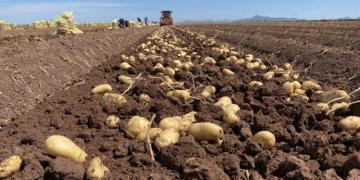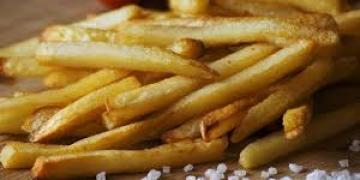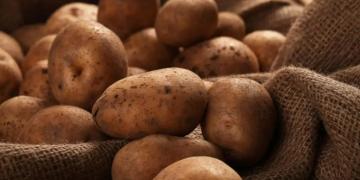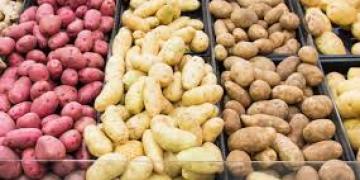Canadá: Rotational grazing ’win-win’ for potato and beef farmers on P.E.I.
Research project looking at best crops and cows to improve soil quality .
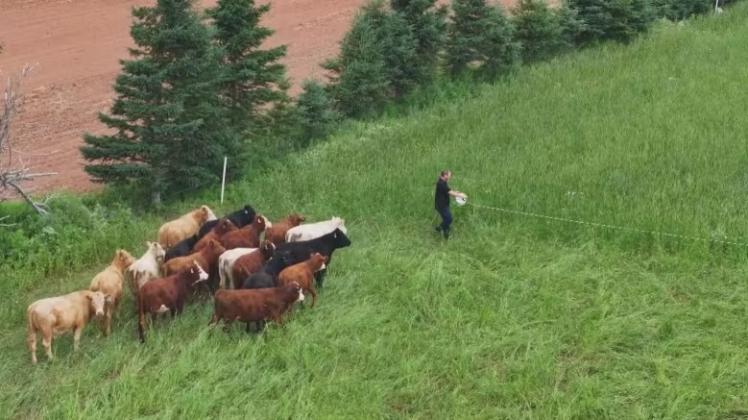
Nick Green’s cows perk up when they see him heading toward them. The effect is even more pronounced when he walks to the movable fence that keeps them in the field.
They know they’ll be on the move soon — and that means some tasty new grazing ahead.
"They get pretty excited when they see somebody coming," Green said. "They know they’re going to a fresh spot of grass."
Green is one of several beef producers on Prince Edward Island involved in a new research project on rotational grazing.
The project explores how beef and potato producers can help each other out. Beef producers get free food for their cows, and in exchange, farmers get free manure for their potato fields.
"[The cows] move just about every day," Green said. "Sometimes twice a day, depending on the crop and the weather."
Green, who grew up in a farm, said his family would’ve traditionally let the beef cows out into a pasture for the summer — and that’s where they would’ve stayed.
When got his own farm in 2015, he was looking at ways to grow his herd without having to purchase large amounts of land for grazing.
Slow-release fertilizer brings ’dramatic’ reduction in greenhouse gas emissions
How a new mini-wetland is creating a natural filter for a P.E.I. farm field
"I’ve looked at those numbers, and I can’t afford to buy land to run cattle," he said.
"We’ve had an increase in costs, just with inflation and everything else recently. So it’s been cost-prohibitive."
Letting his cows out on someone else’s fields seems like a good alternative.
Researchers want to see if the manure from the cows will make the soil healthier, which could improve yields and reduce the amount of fertilizer potato farmers use.
Ryan Barrett, who calls cattle "nature’s greatest composters," started working with Green on the rotational grazing project last summer.
"What we’re hoping to [learn] through some of the trial work is, Can we see what the quality of the soil was before? What’s the quality of the soil after?" said Barrett, research and agronomy specialist with the P.E.I. Potato Board.
"We’re looking at nutrients. We’re looking at soil health. We’re looking at organic matter."
It’s fresh right out of the cow. So it’s about as close as you can get to fresh.
— Nick Green, beef producer
Barrett said his role is as a kind of matchmaker for beef and potato producers.
"We have a lot of potato farmers that don’t have beef cattle, and a lot of beef producers that maybe don’t have the transportation or maybe they don’t have those connections," he said. "So we’re trying to help find ways to connect people."
But just exactly how good is this manure?
"It’s fresh right out of the cow. So it’s about as close as you can get to fresh," Green said.
"The benefit to that versus stored manure is there’s more active nutrients and biology in it."
Green has been tracking the quality of the manure his animals produce, even taking photos to compare from field to field.
"We’ve been actively keeping an eye on the amount of bugs that are moving around and following the cattle," he said.
"They help pull a lot of that nutrients back down into the soil and get it working. So hopefully that’ll reduce the input costs for the potato farmer."
Rain ’always a good thing’ — but maybe not this much, P.E.I. farmers say
Big uptake from P.E.I. farmers for climate funding
Because the cows are also doing the work of a tractor, Green said they also help reduce diesel costs and work for potato farmers.
"Traditionally, they would be chopping this two or three times a year to return the green manure back into the soil.... This way, we’re using the cattle to do that," Green said.
"It’s a win-win for both the producer and the potato farmer."
As a member of the P.E.I. Cattle Producers Association, Green is hoping rotational grazing will be a way to rebuild the province’s beef industry, which has been in decline.
"We’re hopeful to get some new producers that are looking to get into the game," Green said.
"This can help reduce their overhead costs out of the gate, so that they can start growing a herd as well."
Fuente: https://www.cbc.ca/news/canada/prince-edward-island/pei-rotational-grazing-beef-and-potato-farmers-1.6910961

